Module- AI Tools in Ethical Hacking Training
• Chat gpt
• Google Chronicle
• Blackbox Ai
• Grok
• Deep Seak
• Pentest GPT
• Kali gpt
• ELK stack
• MITRE Attack Navigator
We need to plan our cybersecurity or ethical hacking career in Ghaziabad or nearby. Do you want to pursue this career?
1. Certified ethical hacker in Ghaziabad
2. Cyber security expert in Ghaziabad
3. Ethical hacking expert in Ghaziabad
4. Cyber security Analyst in Ghaziabad
5. Ethical hacking Analyst in Ghaziabad
6. Network Penetration tester in Ghaziabad
7. Web application penetration tester in Ghaziabad
8. Computer forensic investigator in Ghaziabad
9. Senior security analyst in Ghaziabad
We need to make a decision accordingly to build our career in cybersecurity. There are many courses available in cybersecurity and ethical hacking. Let’s plan accordingly.
1. Security training institute in Ghaziabad
2. Cyber security training course in Ghaziabad
3. Ethical hacking Training course in Ghaziabad
4. Cyber security Training institute in Ghaziabad
5. Ethical hacking training institute in Ghaziabad
6. Networking security training institute in Ghaziabad
7. Web application security training institute in Ghaziabad
8. Computer forensic training institute in Ghaziabad
9. Certified ethical hacking course in Ghaziabad
10. Ethical hacking course in Ghaziabad
11. CEH Training course in Ghaziabad
12. ECSE Training certification course in Ghaziabad
13. CHFI Training course in Ghaziabad
14. Networking security training course in Ghaziabad
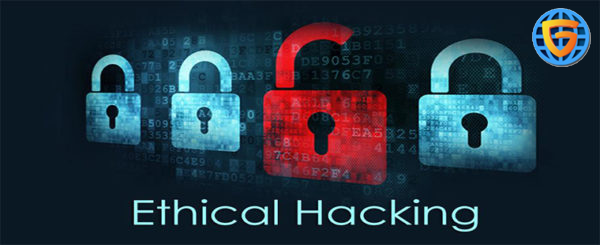
There are many institute in Ghaziabad or near to Ghaziabad but we need to take good decision to make our carrier in information technology. Before the security we must have the knowledge of networking, networking may be cisco networking, networking may be Microsoft networking or networking may be red hat networking. Before the security we must have the knowledge of following topics so easily can start the cyber security module. Will be good for the base.
Ethical Hacking Syllabus or Outline
Day1 - Cyber Security
Day2 - Password Cracking
Day3 - Penetration Testing for Sniffing Attacks
Day4 - Malware
Day5 - IAM(Identiity and Access Management)
Day6 - Metasploit Framework
Day7 - OWASP Top 10: Overview
Day8 - Incident Response Steps: Overview
Day9 - Penetration Testing for Database
Day10 - Information Gathering
Day11 - OWASP Top 10 Web Application Security Risks
Day12 - Cross Site Scripting
Day13 - Intrusion Prevention System
Day14 - NIST RMF: Overview
Day15 - Target Enumeration and Port Scanning Techniques
Day16 - Social Engineering
Day17 - Malware Threats
Day18 - Forensics Steps: Overview
Day19 - Penetration Testing: Overview
Day20 - Introduction to Ethical Hacking & Phases of Hacking
Day21 - Penetration Testing for Network Infrastructure
Day22 - Web Application Testing: Overview
Day23 - Network Defense: Best Practices
Day24 - Wireless Attacks & Countermeasures
Day25 - Information Life Cycle
Day26 - Introduction to Penetration Testing & Phases of Pen-Testing
Day27 - Penetration Testing for Social Engineering
Day28 - Sniffing
Day29 - Cloud Computing threats & attacks
Day30 - SQL Injection
Day31 - Physical Security
Day32 - Penetration Testing for Web Application
Day33 - Shell Scripting(Linux): Introduction only
Day34 - Internet of Things threats & attacks
Day35 - Footprinting
Day36 - DOS(Denial of Service)
Day37 - Public Key Infrastructure
Day38 - Cryptography
Day39 - Firewalls
Day40 - Reconnaissance
Day41 - SDLC(Systems Development Life Cycle)
Day42 - Cryptography: Overview
Day43 - Intrusion Detection System
Day44 - Finding Vulnerabilities
After Completion of the course students will able to perform following things –
Day1 - Various types of footprinting, footprinting tools, and countermeasures.
Day2 - Network scanning techniques and scanning countermeasures.
Day3 - System hacking methodology, steganography, steganalysis attacks, and covering tracks.
Day4 - Different types of Trojans, Trojan analysis, and Trojan countermeasures.
Day5 - Working with viruses, virus analysis, computer worms, malware analysis procedure, and countermeasures.
Day6 - Packet sniffing techniques and how to defend against sniffing.
Day7 - Social Engineering techniques, identify theft, and social engineering countermeasures
Day8 - DoS/DDoS attack techniques, botnets, DDoS attack tools, and DoS/DDoS countermeasures.
Day9 - Different types of web server & web application attacks.
SQL injection attacks & Wireless Encryption.
Day10 - Mobile platform attack vector & Android vulnerabilities
Day11 - Various cloud computing concepts, threats, attacks, and security techniques and tools.
Day12 - Different types of cryptography ciphers, Public Key Infrastructure (PKI), cryptography attacks, and cryptanalysis tools.
Day13 - Different threats to IoT platforms and to defend IoT devices securely.
Day14 - It can help IT professionals get into the minds of a typical hacker and take preventive steps to safeguard systems, devices, and networks.
Day15 - Understanding the lifecycle of exploits that expose security vulnerabilities is also a key consideration. A CEH will know what it takes to foolproof the systems and networks.
Day16 - Completing a CEH course can be your Launchpad for advanced IT security certification courses such as penetration testing, audit certifications, and forensics.
Day17 - In this ever-connected digital world, the demand for CEH professionals is quite high as companies, want to prevent losses arising out of data breaches.
Day18 - Give an edge to your career with EC-Council certification training courses. Students can join the classes for Certified Ethical Hacker (CEH v10) Training & Certification Course at Koenig Campus located at New Delhi, Bengaluru, Shimla, Goa, Dehradun, Dubai & Instructor-Led Online.
 4.9 out of 5 based on 4000 Students Rating
4.9 out of 5 based on 4000 Students Rating
The greatest ethical hacking training in Ghaziabad is offered by the top-tier Global Institute of Cyber Security & Ethical Hacking (GICSEH), a world-class training facility that equips students with the skills necessary to land the best jobs in businesses. Training in ethical hacking is offered by the Global Institute of Cyber Security & Ethical Hacking (GICSEH). Being the finest Ethical Hacking training institutions in Ghaziabad, GICSEH is an ethical hacking training organisation with experience in giving the best training services. It offers hands-on technological training by letting candidates work on real-time projects. A committed placement staff from GICSEH is also available to its candidates, offering them support and a plethora of opportunities during their training.
The goal of the Ghaziabad Ethical Hacking training program's course structure is to provide students with a useful skill set. It covers every training topic, from fundamental to advanced. Technology professionals with experience managing large-scale ethical hacking programming live projects monitor and manage the GICSEH Ethical Hacking certification course in Ghaziabad.
The best place to learn ethical hacking in Ghaziabad is GICSEH, which has state-of-the-art facilities and infrastructure. It was founded for individuals who want to learn ethical hacking skills and includes courses on introduction to ethical hacking, overview of ethical hacking, ethical hacking on real-world projects, and ethical hacking placement training.
Beginners ethical hacking training in Ghaziabad is being conducted in accordance with MNC guidelines to provide the most comprehensive understanding of ethical hacking possible using course materials and a syllabus based on industry standards. Technology specialists created the course framework, which aids in candidates' proficiency. The training programme will also assist them achieve their goals and establish themselves in MNCs and large corporations.
A pragmatic approach is used in the ethical hacking training course because we think that students learn ethical hacking programming best when they are actively involved in solving problems rather than just studying theory. As a result, training sessions are more practical than academic. Through this type of practice, candidates can build a highly effective skill set and acquire perceptive information.
One of the top programmes for ethical hacking training, GICSEH offers 100% job placement support. GICSEH offers training programmes and modules that are specifically designed with students and working professionals in mind. All five days of the GICSEH are dedicated to ethical hacking instruction, and additional weekend courses can also be planned and organised. We also provide quick training courses in ethical hacking to professionals and students who want to advance.
With modern art integrated infrastructure, GICSEH is a premier ethical hacking training facility in Ghaziabad that offers students the best window into the actual working world of the IT industry. According to the applicants module, the GICSEH institute prepares a large number of pupils for the Ethical Hacking training at a low cost.
Ghaziabad's ethical hacking courses are emerging as a solution to security, one of the world's most pressing issues. In the modern IT world, one of the biggest issues that security specialists are constantly worried about is hacking. The field of ethical hacking in Ghaziabad is one of the IT branches that focuses mostly on cyber security and hacking. The three primary shades of hacking, or the differentiation between white, black, and grey, are observed in this context. White hat hackers in Ghaziabad are those who have hacked an organisation for a good cause; they typically do this to assess the security of the system so that sensitive data and documents are protected from outside attack.
One of the most important aspects of network security is ethical hacking, which is also one of the most sought-after courses for IT security experts in Ghaziabad. Doing ethical hacking training in Ghaziabad one can also able to secure any company data but also they can able to safeguard own data also.
These days, with everyone depending on the internet, technology can be both a blessing and a curse. In order to prevent information from being stolen from target systems, Global Institute of Cyber Security & Ethical Hacking (GICSEH) will teach you how to find and fix these gaps. Actually, there are four main categories of cyberattacks: organised crime organisations attempting to pilfer highly valuable items from a person or company.
Then there are the malevolent hackers that attempt to break into computer networks by impersonating any of these organisations. These would often aim for networks or a sizable company with a particular strategy.
Furthermore, there exist rogue personnel who would seek to obtain knowledge that could be counterproductive to the organization's objectives.
You can learn how to recognise and get rid of these hazards by taking classes on ethical hacking. Analysing a system is the first stage. To keep a system from being compromised, you must identify the threat and decide what kind of system has to be safeguarded. After you've identified a workaround, you can move on to devising a strategy for taking down the selected system.
Data recovery is the main topic of an ethical hacker course's second stage. Any data lost or compromised during the attack can be restored. Creating a password to get access to a particular system is frequently a necessary step in data recovery so that you may retrieve the information you require. Using a backup software application that you may download and install on the computer you're working on might also be necessary. Once you've completed these two tasks, you can move on to the next phase, which is protecting your system against more attacks.
You'll find some recommendations on how to improve your system's data security in the third stage. To protect sensitive data, you may, for example, make the password more difficult or change the type of encryption. against strengthen the security and resistance against attacks, you can also add more hardware or software.
You will learn the fundamentals of intrusion detection in the fourth step.
Upon finishing the Ghaziabad ethical hacking course, you need to be able to spot potentially exploited weaknesses in systems. After you've recognised them, you may use the strategies to solve them and raise your system's security levels.
You will also learn how to recognise and steer clear of phishing scams in the Ethical Hacker course. Phishing aims to provide a con artist access to a person or business so they can utilise their private information for financial benefit. This is a prevalent issue on the internet, but by teaching you how to stop these kinds of attacks, the GICSEH;Ethical Hacker course can help you get past it.
You will learn about a wide range of other subjects, including web security, forensics, and much more, with the ethical hacking class. You can get a general understanding of web security, its operations, and what to anticipate from it by taking these online courses.
Additionally, the Ethical Hacker Course equips you with the knowledge and abilities to defend oneself against potential thieves. Hackers might target you, for instance, if they want information about a specific business or product. If you're not careful, they might even try to steal your personal information. You may set a firewall on your computer, generate passwords that only you know, and install an anti-phishing programme to make yourself safe from this kind of attack.
Moreover, the Ghaziabad Ethical Hacker Course teaches you responsible internet usage. This includes downloading software that will prevent the download of dangerous programmes or files, setting up firewalls, and installing antivirus software. This will help maintain your computer operating as efficiently as possible in addition to halting the spread of malware.
In general, the Ethical Hacker Course is an excellent resource for learning how to defend your computer from online threats. You will get important knowledge from the course about ethical hacking techniques that will help you deal with these challenges in your daily life. You may learn how to use these skills to defend yourself against cyber crimes by enrolling in an affordable online hacker course.

Ethical hackers are in high demand in Ghaziabad due to the business world's rapid digitization and growing cyberattack dangers. To satisfy this increasing need, the Global Institute of Cyber Security & Ethical Hacking (GICSEH) is at the forefront of offering excellent ethical hacking training. Being the premier ethical hacking institute in Ghaziabad, GICSEH provides thorough training and courses in ethical hacking to people and organizations who want to improve their cybersecurity.
There is a greater need than ever for ethical hackers in today's connected world when data breaches and cyber attacks pose serious risks to both persons and corporations.
To assist organizations in fortifying their cybersecurity defenses, ethical hacking—also referred to as penetration testing or white-hat hacking—involves locating weaknesses in computer systems, networks, and applications. Through the simulation of authentic cyberattacks, ethical hackers can identify vulnerabilities that malevolent hackers might take advantage of. This allows organizations to take preemptive measures to close security breaches and safeguard confidential data.
The goal of GICSEH's ethical hacking course in Ghaziabad is to give students the information and abilities they need to become skilled ethical hackers. Numerous subjects are covered in the extensive curriculum, including penetration testing, online application security, network security, and cryptography. To properly defend against cyber threats, students learn how to conduct ethical hacking assessments, examine vulnerabilities, and suggest security remedies.
GICSEH takes pride in having knowledgeable faculty members with years of industry experience and understanding, making it the top ethical hacking institute in Ghaziabad. Students gain from practical exercises, real-world hacking situations, and hands-on training that equips them for the difficulties of today's cybersecurity environment. Students can practice their skills and stay up to date on the newest developments in ethical hacking in a dynamic learning environment thanks to the institute's state-of-the-art facilities and cutting-edge technology.
Beyond just academic understanding, GICSEH's Ethical Hacking Training in Ghaziabad places a strong emphasis on real-world application and hands-on learning. To hone their critical thinking and problem-solving skills, students can work on real projects, take part in hackathons, and practice cyberattack scenarios.
Students' job chances in this in-demand subject are further enhanced by the institute's industry relationships and networking opportunities, which allow them to engage with cybersecurity professionals and potential employers.
Safeguarding digital assets and sensitive data is a vital responsibility of ethical hacking, which is more than just a professional choice. People can start a fulfilling career path that offers job stability, excellent remuneration, and prospects for professional progress by enrolling in GICSEH's Ethical Hacking Course in Ghaziabad. Businesses in a wide range of sectors, including IT, banking, healthcare, government, and more, are in great demand for ethical hackers as they realize how crucial cybersecurity is in the current digital era.
The increasing requirement for ethical hacking services in Ghaziabad highlights the necessity for qualified cybersecurity experts who can support businesses in fending off changing online dangers. The Ethical Hacking Institute at GICSEH in Ghaziabad is a well-known choice for anyone looking for the best ethical hacking training. With its extensive course offerings, knowledgeable professors, practical instruction, and industry ties, GICSEH equips students to excel as ethical hackers and have a constructive influence in the cybersecurity space.
The significance of understanding ethical hacking in the current digital era, when cybersecurity risks are significant, cannot be emphasized. The Ghaziabad-based Global Institute of Cyber Security & Ethical Hacking (GICSEH) provides a wealth of advantages to anyone wishing to advance their knowledge and abilities in this area. Being the top ethical hacking institute in Ghaziabad, GICSEH offers thorough training and courses in ethical hacking, enabling students to become skilled cybersecurity professionals and ethical hackers.
Gaining specialized skills that are highly sought after in the cybersecurity sector is one of the main advantages of studying ethical hacking at GICSEH. By concentrating on proactive threat identification and vulnerability evaluation, ethical hacking transcends conventional IT security methods. Students who register in GICSEH's Ethical Hacking Course in Ghaziabad will receive practical training in detecting security flaws, carrying out penetration testing, and putting strong security measures in place to shield businesses from online threats.
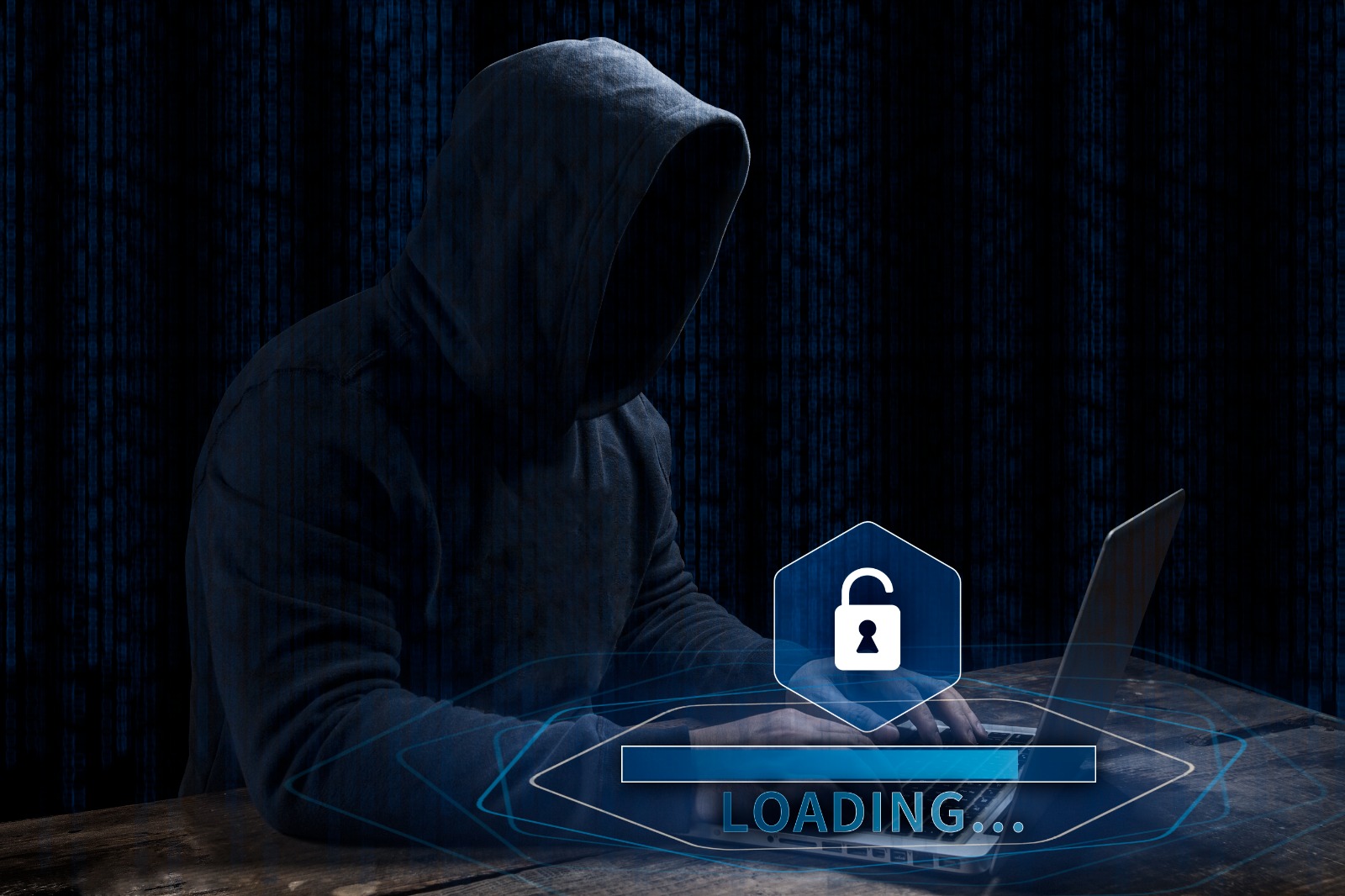
Students who register in GICSEH's Ethical Hacking Course in Ghaziabad will receive practical training in detecting security flaws, carrying out penetration testing, and putting strong security measures in place to shield businesses from online threats.
Furthermore, the GICSEH Ethical Hacking Institute in Ghaziabad is home to a group of accomplished instructors who infuse the classroom with a plethora of industry knowledge and proficiency. Pupils gain from individualized training, mentorship, and advice from cybersecurity experts who are knowledgeable about the most recent developments and strategies in ethical hacking. In addition to improving the educational process, this mentorship offers insightful knowledge and useful abilities that students may use in real-world situations.
The GICSEH's state-of-the-art facilities and cutting-edge technology infrastructure are major benefits of studying ethical hacking. With the use of cutting-edge cybersecurity tools, software, and equipment, students can model actual hacking situations and hone their practical abilities in a safe setting. Through practical instruction, students gain the competence and self-assurance to address intricate cybersecurity issues and make wise choices to properly protect digital assets.
Additionally, the GICSEH's Ethical Hacking Training in Ghaziabad places a strong emphasis on hands-on learning and experiential learning, giving students the chance to work on real projects, take part in hackathons, and practice simulated cyberattacks. Students can gain a thorough understanding of cybersecurity best practices, critical thinking skills, and problem-solving techniques through this immersive learning experience. Through the use of real-world scenarios, students can augment their learning outcomes and get ready for the always-changing and dynamic realm of cybersecurity.
Learning ethical hacking at GICSEH offers several job perks and chances for professional advancement in addition to technical capabilities. People with experience in cybersecurity and ethical hacking are in a strong position to secure rich job opportunities and further their careers, as ethical hackers are highly sought after in a variety of industries. Students who complete GICSEH's Ethical Hacking Course in Ghaziabad will be able to stand out on the job market, prove their expertise in ethical hacking, and have access to a variety of cybersecurity employment options.
Learning ethical hacking at GICSEH in Ghaziabad has several advantages, from prospects for professional progression and hands-on training to specialized skill development and expert mentoring. GICSEH, the top ethical hacking institute in Ghaziabad, is dedicated to giving students the information, expertise, and experience they need to succeed in the cybersecurity industry. People can start a fulfilling road to becoming ethical hackers and having a significant effect in the cybersecurity space by enrolling in GICSEH's ethical hacking courses and training in Ghaziabad.

To pursue a profession in cybersecurity, selecting the best ethical hacking school in Ghaziabad is essential. The Global Institute of Cyber Security & Ethical Hacking (GICSEH) is a distinguished organization that provides excellent ethical hacking training and courses in Ghaziabad. This thorough guide offers insightful information and important factors to take into account while choosing an ethical hacking institute in Ghaziabad, assisting prospective ethical hackers in making an informed decision.
One of the most important things to look into while looking into choices for an ethical hacking course in Ghaziabad is the institute's standing and legitimacy in the cybersecurity sector.
In the world of ethical hacking, GICSEH has made a name for itself as a reliable source thanks to its excellent training courses, knowledgeable instructors, and industry-relevant curriculum. You can be sure that the education you receive at GICSEH, your Ethical Hacking Institute in Ghaziabad, satisfies industry standards and gives you the tools you need to succeed in the field of cybersecurity.
When choosing ethical hacking training in Ghaziabad, the course curriculum and training approach provided by the organization should also be carefully considered. The goal of GICSEH's ethical hacking courses is to give students a thorough understanding of ethical hacking concepts, methods, and best practices. Students can apply their knowledge in real-world circumstances through the institute's practical exercises, hands-on training methodology, and real-world simulations, which ensures they are well-prepared to effectively tackle cybersecurity concerns.
Additionally, a major factor in determining how students learn at an ethical hacking institute in Ghaziabad is the knowledge and experience of the staff. A team of seasoned cybersecurity experts and ethical hackers from GICSEH fills the classroom with a wealth of industry expertise and real-world insights. Students receive invaluable mentorship, direction, and real-world perspectives from professionals who are actively involved in the cybersecurity area. These experiences improve students' learning outcomes and position them for successful careers in ethical hacking.
Prospective students should take into account the infrastructure and amenities offered by an Ethical Hacking Institute in Ghaziabad in addition to the curriculum and teachers. With its state-of-the-art facilities, cutting-edge technology, and sophisticated cybersecurity tools, GICSEH provides students with an engaging and dynamic learning environment. Students can improve their practical skills and technical competency by gaining hands-on experience with the newest cybersecurity technologies and techniques through access to industry-standard equipment, software, and resources.
Additionally, it is critical to evaluate the industry connections, partnerships, and networking prospects of an ethical hacking institute in Ghaziabad. GICSEH works with top companies, cybersecurity specialists, and business leaders to offer students beneficial networking opportunities, internships, and job placements.
Students can broaden their professional network, obtain hands-on experience, and improve their prospects for employment in the cutthroat cybersecurity area by taking advantage of these industry contacts.
For students hoping to launch their careers in cybersecurity, the post-training assistance and career services provided by an ethical hacking institute in Ghaziabad are also crucial factors to take into account. GICSEH offers extensive career counseling, help with resume development, interview training, and job placement support to ensure a smooth transition for students from training to employment. The institute's committed career services team works directly with students to find possibilities, establish connections with possible employers, and successfully negotiate the labor market.
Selecting the best Ghaziabad Ethical Hacking Institute is essential to succeed in the cybersecurity industry. When you choose GICSEH as your go-to source for ethical hacking training and courses in Ghaziabad, you'll gain access to a renowned organization, a curriculum that is aligned with industry standards, knowledgeable professors, cutting-edge facilities, industry connections, and extensive career services. Equip yourself with the know-how, abilities, and resources required to master ethical hacking and contribute significantly to the constantly changing field of cybersecurity.
A top-notch ethical hacking course is a must-roll if you want to succeed in the cybersecurity and ethical hacking fields. These courses offer a wealth of chances in the quickly expanding sector of cybersecurity in addition to imparting useful information and skills. This post will discuss some of the best ethical hacking courses that are accessible globally, to give readers the knowledge and skills they need to successfully negotiate the challenging field of cybersecurity.
1. Certified Ethical Hacker (CEH) Certification: One of the most prestigious and in-demand certifications in the ethical hacking industry is the Certified Ethical Hacker (CEH) certification. This course, which is provided by the EC-Council, addresses a variety of subjects, such as vulnerability assessment, penetration testing, and ethical hacking methods. Professionals can show that they are knowledgeable about ethical hacking and cybersecurity best practices by earning the CEH certification.

2. Offensive Security Certified Professional (OSCP): This certification emphasizes practical abilities in ethical hacking and penetration testing and is obtained through hands-on training. This course, provided by Offensive Security, challenges students to complete a demanding 24-hour exam in which they must show that they can efficiently exploit vulnerabilities and secure systems. Because of its hands-on training methodology, the OSCP certification enjoys great esteem within the cybersecurity community.
3. Certified Information Systems Security Professional (CISSP): This certification from the International Society for Information Security and Cybersecurity verifies a person's proficiency in information security and cybersecurity. This course, which is provided by (ISC), addresses a variety of subjects, such as asset security, communication and network security, software development security, and security and risk management. Professionals with the CISSP certification are in great demand due to their extensive cybersecurity knowledge and proficiency.
4. Certified Secure Computer User (CSCU): This certification is intended for anyone who wishes to increase their understanding of cybersecurity best practices and concepts. This course, which is provided by the EC-Council, addresses important subjects such as email security, social engineering, identity theft, and security awareness. The CSCU certification gives people the abilities they need to defend their companies and themselves from online attacks.
5. Certified Information Security Manager (CISM): Professionals looking to progress in information security management may consider earning the Certified Information Security Manager (CISM) certification. This ISACA-offered course addresses subjects like information security program development, risk management, incident management, and information security governance. Professionals with CISM certifications are qualified to create and oversee effective cybersecurity initiatives inside businesses.
6. CompTIA Security+: This core certification from CompTIA covers all the important areas related to cybersecurity, such as application, data, and host security, network security, threats and vulnerabilities, and compliance and operational security. For those who want to get a strong foundation in security ideas and best practices and launch their careers in cybersecurity, this course is perfect.
7. Certified Secure Software Lifecycle Professional (CSSLP): Professionals working in the software development lifecycle are intended to use the Certified Secure Software Lifecycle Professional (CSSLP) certification. This course, which is provided by (ISC)², addresses the principles, requirements, design, implementation, testing, and maintenance of secure software. Professionals with CSSLP certification are qualified to create safe software and efficiently reduce security threats.
8. The Computer Hacking Forensic Investigator (CHFI) certification is a great fit for individuals working in the fields of digital forensics and cybercrime investigations. This course, which is provided by the EC-Council, addresses subjects like legal issues, evidence gathering and preservation methods, and forensic investigation procedures. Professionals with CHFI certification are qualified to look into cyber events and collect data for court cases.
9. Certified Incident Handler (ECIH): This certification is intended for individuals who oversee cybersecurity issues and is earned by professionals in this field. This course, provided by the EC-Council, addresses incident handling procedures, detection and response methods, and incident recovery approaches. Professionals with ECIH certifications are qualified to handle cybersecurity events and lessen their effects on businesses.
10. Certified Cloud Security Professional (CCSP): Professionals involved in cloud architecture and security may consider earning the CCSP certification. This course, which is provided by (ISC), addresses subjects like architecture, risk management, security, cloud concepts, and compliance. Effective protection of cloud-based assets can be achieved through the design and implementation of secure cloud environments by professionals certified by CCSP.
The best ethical hacking courses listed above include a wide selection of certifications and training courses that are intended to provide people with the credentials, know-how, and abilities they need to be successful in the ever-evolving world of cybersecurity. These courses offer a strong foundation in cybersecurity principles, best practices, and practical experience, making them ideal for both novices wishing to start their career in ethical hacking and seasoned professionals eager to develop their abilities. You may improve your knowledge, increase your career options, and have a significant effect in the rapidly changing field of cybersecurity by obtaining these credentials.
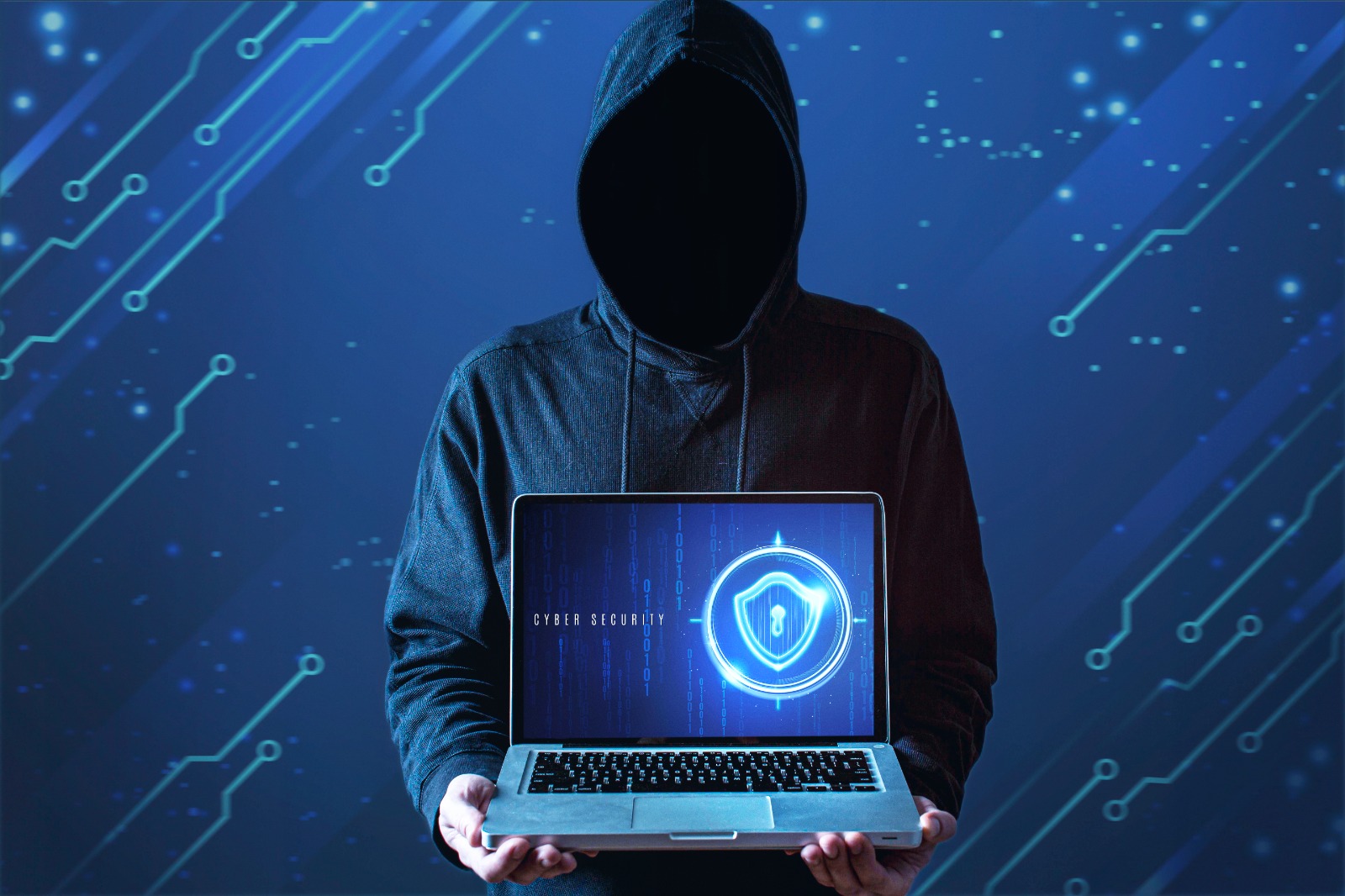
If you want to start a fulfilling career in ethical hacking, Ghaziabad has a variety of options through recognized Ethical Hacking Courses, Institutes, and Training Programmes. By taking a planned approach and exploiting the resources available in Ghaziabad, you can set the route for a successful cybersecurity career. Here are some important steps to help you start your career in ethical hacking:
1. Research Ethical Hacking Courses in Ghaziabad: Research Ethical Hacking Courses in Ghaziabad. Look for respected institutes, such as the Global Institute of Cyber Security & Ethical Hacking (GICSEH), that offer thorough training programs by industry standards.
To select the program that best fits your needs, consider the course curriculum, faculty knowledge, hands-on training opportunities, and industry links.
2. Enrol in an Ethical Hacking Course in Ghaziabad: Once you've discovered an appropriate course, enroll to gain the necessary knowledge and abilities for a job in ethical hacking. Institutes such as GICSEH provide specialized training in ethical hacking techniques, penetration testing, vulnerability assessment, and cybersecurity practices. Enrolling in a reputed institute will provide you with vital insights and practical experience, allowing you to thrive in your area.
3. Gain hands-on experience: Ethical hacking is a hands-on subject that takes extensive experience to master cybersecurity tactics and tools effectively. Make use of the practical exercises, real-world simulations, and cybersecurity laboratories provided by your chosen institute to improve your technical skills and problem-solving talents.
4. Connect with Industry Professionals: Networking is vital for building your career in ethical hacking. Attend industry events, workshops, and seminars in Ghaziabad to meet cybersecurity experts, ethical hackers, and other professionals. Join online forums, cybersecurity networks, and social media groups to keep up with industry trends, technology, and career prospects. Building a strong professional network can provide opportunities for mentorship, collaboration, and career progress in ethical hacking.
5. Pursue Advanced Certifications: Demonstrate your expertise in ethical hacking by obtaining certifications like Certified Ethical Hacker (CEH), Offensive Security Certified Professional (OSCP), or Certified Information Systems Security Professional. These certificates confirm your cybersecurity skills, knowledge, and expertise, making you a strong candidate for ethical hacking positions in Ghaziabad and beyond. Invest in ongoing learning and professional development to be competitive in the continuously expanding sector of cybersecurity.
6. Consider Internships: Internships offer practical experience, exposure to real-world projects, and networking possibilities in the cybersecurity field. Investigate internship programs given by enterprises, startups, and cybersecurity organizations in Ghaziabad to obtain practical experience, use your skills in a professional situation, and lay a solid foundation for your career in ethical hacking. Internships can also lead to full-time employment and help you establish yourself as a reputable professional in your sector.
7. Stay Current with Emerging Trends: Ethical hacking is a continually evolving profession with new technology, dangers, and security concerns. Stay up to date on emerging trends, cybersecurity news, and best practices by reading industry publications, attending webinars, and taking part in online training programs. Continuous studying and staying up to date on the newest cybersecurity advances can help you gain competence and confidence as an ethical hacker in Ghaziabad.
Starting a career in ethical hacking in Ghaziabad necessitates a mix of education, hands-on experience, networking, certifications, internships, and ongoing learning. Enrolling in a respected Ethical Hacking Course, obtaining practical experience, networking with industry leaders, pursuing advanced certifications, exploring internship opportunities, and being updated on developing trends can equip you for success in the competitive field of cybersecurity.
In today's digital age, cybersecurity has become essential for safeguarding sensitive data and preserving the integrity of systems and networks. Ethical hackers play a vital role in safeguarding companies from cyber threats by identifying vulnerabilities, conducting penetration testing, and implementing security measures to improve resilience. Individuals are trained to become skilled ethical hackers at GICSEH Global Institute of Cyber Security & Ethical Hacking in Ghaziabad via specialized Ethical Hacking Courses and Training programs. Let's talk about the role of ethical hackers and the importance of ethical hacking education at GICSEH in Ghaziabad.
Ethical hackers, often white-hat hackers , are cybersecurity specialists who deliberately seek out and repair security issues in systems, networks, and applications. Unlike malevolent hackers, ethical hackers work within legal limits and with the permission of organizations to improve their cybersecurity posture. By simulating cyber attacks and exploiting weaknesses, ethical hackers assist organizations in strengthening their defenses, mitigating risks, and protecting sensitive data from unauthorized access.
GICSEH Global Institute of Cyber Security & Ethical Hacking in Ghaziabad trains individuals to play the role of ethical hackers through comprehensive Ethical Hacking Courses that include a wide spectrum of cybersecurity principles, tools, and tactics. The institute provides specialized training programs that educate students with the skills necessary to traverse the complex cybersecurity landscape and effectively combat evolving threats. Enrolling in an Ethical Hacking Course at GICSEH provides learners with practical experience, hands-on training, and industry-relevant information to flourish in the field of ethical hacking.
Ethical hacking education at GICSEH in Ghaziabad focuses on establishing important competencies for ethical hackers such as penetration testing, vulnerability assessment, network security, cryptography, incident response, and ethical hacking methodology. Students are exposed to real-world scenarios, cybersecurity laboratories, and practical exercises replicating cyber assaults and security breaches to help them improve their problem-solving and technical skills. The institute emphasizes hands-on learning, allowing students to apply theoretical principles in real-world contexts and get important expertise with ethical hacking techniques.
Enrolling in an Ethical Hacking Course at GICSEH Global Institute of Cyber Security & Ethical Hacking in Ghaziabad gives students access to experienced faculty members, industry experts, and cybersecurity professionals who will mentor, guide, and support them throughout their educational journey. The institute promotes a collaborative learning environment in which students can interact with their peers, work on group projects, and share ideas to improve their grasp of ethical hacking concepts and practices. GICSEH is dedicated to developing talent, encouraging innovation, and training people for successful careers in cybersecurity.
Ethical hackers play a critical role in assisting organizations in identifying security flaws, assessing risks, and implementing proactive cyber threat protection measures. Ethical hackers help organizations strengthen their defenses, secure vital assets, and maintain regulatory compliance by performing penetration testing, security assessments, and vulnerability scans. Ethical hacking training at GICSEH in Ghaziabad provides learners with the knowledge required to become skilled ethical hackers and contribute to the cybersecurity resilience of organizations in a variety of industries.
To summarise, the role of ethical hackers is critical in protecting the security and integrity of digital assets in today's linked society. GICSEH Global Institute of Cyber Security & Ethical Hacking in Ghaziabad is instrumental in developing the next generation of ethical hackers through specialized Ethical Hacking Courses and Training programs. Individuals who appreciate the importance of ethical hacking education can begin a satisfying career in cybersecurity, contribute to the preservation of sensitive information, and have a good effect in the fight against cyber threats.

In the fast-changing world of cybersecurity, ethical hacking has emerged as a vital discipline for defending organizations from cyber attacks and vulnerabilities. GICSEH Global Institute of Cyber Security & Ethical Hacking in Ghaziabad is at the forefront of offering specialized Ethical Hacking Courses that will provide individuals with the knowledge, skills, and competence required to flourish in the field of ethical hacking. Let's look at the entire syllabus for an Ethical Hacking Course at GICSEH and comprehend the essential principles covered in the program.
1. Introduction to Ethical Hacking: GICSEH's Ethical Hacking Course covers the role of ethical hackers, legal and ethical issues, and the significance of cybersecurity in the digital age. Students obtain a fundamental understanding of the principles, methodology, and best practices of ethical hacking, laying the foundations for their educational path.
2. Networking Fundamentals: The syllabus includes courses on network protocols, IP addressing, subnetting, routing, switching, and network security measures. Students learn how networks work, communicate, and are guarded, allowing them to analyze network vulnerabilities and evaluate the security posture of network infrastructures.
3. Information Security Concepts: The syllabus covers confidentiality, integrity, availability, authentication, and non-repudiation. Students study information security principles, risk management, security policies, and compliance frameworks to gain a better understanding of the need to protect sensitive data and effectively manage security threats.
4. Cyber Threats and Attack Vectors: Students learn about prevalent cyber threats, attack vectors, and exploitation methods used by hostile actors to breach systems and networks. Students learn how to discover vulnerabilities and protect themselves from potential security breaches by studying several types of cyber attacks , such as malware, phishing, social engineering, and denial-of-service.
5. Penetration Testing and Vulnerability Assessment: The course covers methodology, tools, and techniques for assessing the security of systems and applications. Students receive practical experience by conducting penetration tests, discovering vulnerabilities, exploiting gaps, and making actionable recommendations to improve security defenses.
6. Cryptography and Encryption: Cryptography ensures data security, confidentiality, and integrity. The course covers cryptographic algorithms, encryption techniques, digital signatures, public key infrastructure (PKI), and secure communication protocols, providing students with the knowledge they need to construct strong encryption systems.
7. Web Application Security: Web applications are prone to cyber assaults due to vulnerabilities like SQL injection, cross-site scripting (XSS), and insecure authentication systems. The syllabus delves into web application security principles, secure coding techniques, and web application testing approaches to assist students in securing online applications from potential attacks.
8. Incident Response and Forensics: This course covers incident response processes, digital forensics methodologies, evidence gathering, preservation, and analysis for cybersecurity incidents. The course includes incident handling best practices, forensic tools, and methodology for investigating security breaches, determining root causes, and limiting the effect of cyber incidents.
9. Ethical Hacking Tools and Techniques: The syllabus covers various tools and techniques used in penetration testing and vulnerability assessment. Students receive hands-on experience with industry-standard tools including Nmap, Metasploit, Wireshark, Burp Suite, and others for simulating cyber attacks, exploiting vulnerabilities, and effectively protecting systems.
10. Legal and Ethical Considerations: Complying with laws, regulations, and ethical standards is crucial for ethical hackers. The syllabus covers ethical hacking ethics, confidentiality agreements, and professional duties to help students undertake ethical hacking activities responsibly and legally.
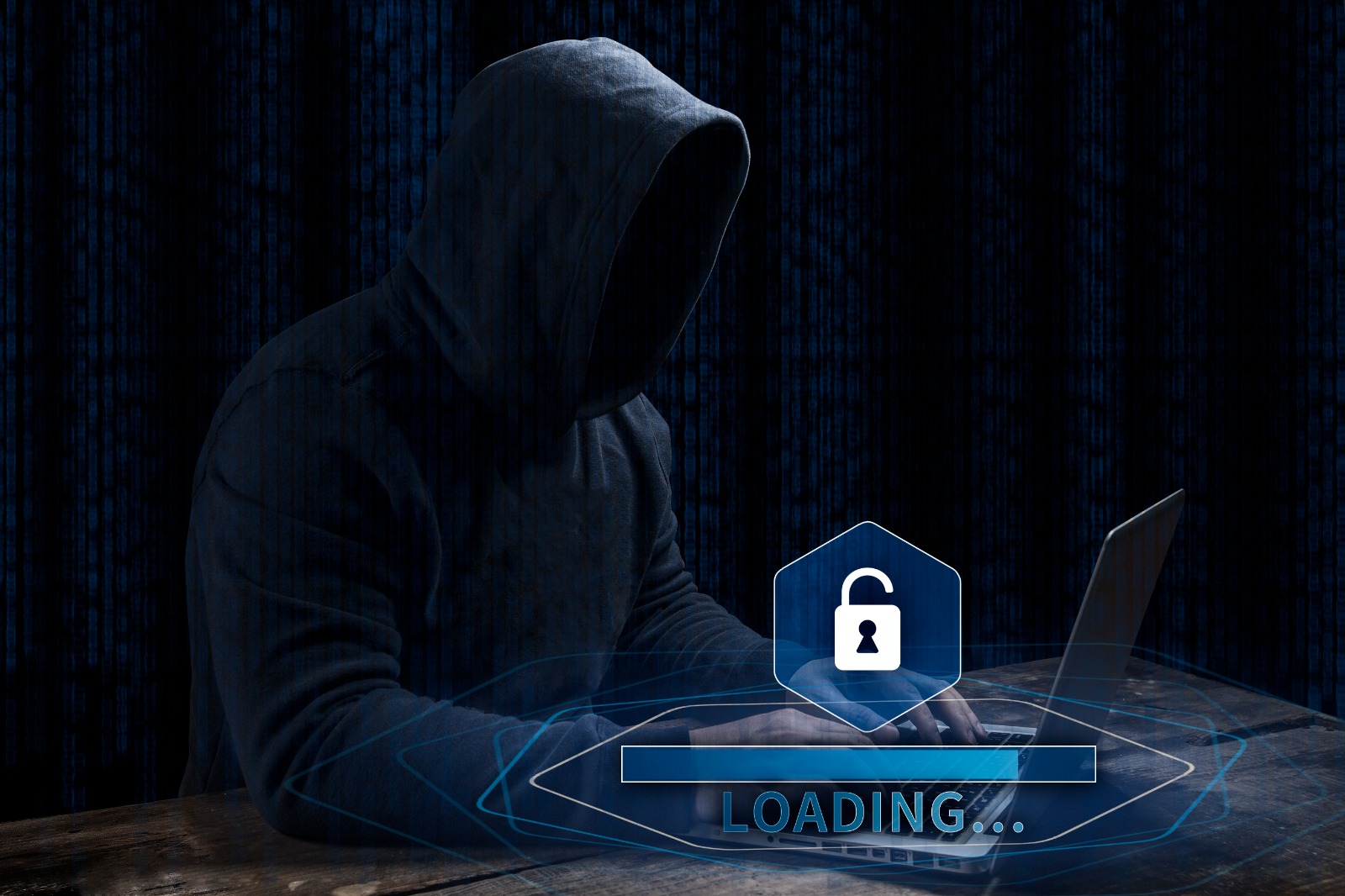
To summarise, the Ethical Hacking Course syllabus at GICSEH Global Institute of Cyber Security & Ethical Hacking in Ghaziabad is intended to offer students a thorough understanding of ethical hacking concepts, practices, and methodologies. The course provides students with the knowledge and skills they need to succeed in the ever-changing field of cybersecurity by covering topics such as networking fundamentals, information security concepts, cyber threats, penetration testing, cryptography, web application security, incident response, ethical hacking tools, and legal considerations. Students at GICSEH are equipped to face cybersecurity issues, safeguard organizations from cyber attacks, and make a positive effect in the field of ethical hacking through a combination of theoretical education, hands-on training, practical exercises, and real-world simulations.
As the demand for qualified cybersecurity workers grows, choosing the proper Ethical Hacking Course in Ghaziabad is critical for anyone looking to pursue a career in ethical hacking. GICSEH Global Institute of Cyber Security & Ethical Hacking is a prominent college in Ghaziabad that provides specialised Ethical Hacking Courses to provide students with the information, abilities, and practical experience required to flourish in the profession. Here are some important recommendations for choosing the best Ethical Hacking Course at GICSEH in Ghaziabad.
Research Ethical Hacking Institutes in Ghaziabad:
To find the top Ethical Hacking Course in Ghaziabad, start by investigating recognised institutes such as GICSEH Global Institute of Cyber Security & Ethical Hacking. Look for institutes that have a track record of providing high-quality education, industry-aligned content, knowledgeable teachers, and hands-on training opportunities. To determine the credibility and usefulness of the Ethical Hacking Course, consider the institute's reputation, student feedback, accreditation, and industry collaborations.
Evaluate Course Curriculum and Specialisations:
When choosing an Ethical Hacking Course at GICSEH in Ghaziabad, consider the curriculum and specialisations available. Look for courses that cover a diverse range of cybersecurity topics, including penetration testing, vulnerability assessment, network security, cryptography, incident response, and ethical hacking techniques. Consider whether the course matches your career objectives, interests, and intended areas of specialisation in the field of ethical hacking.
Assess Faculty Expertise and Industry Connections:
The experience of faculty members and industry ties have a substantial impact on the quality of education and practical training provided by an Ethical Hacking Course. Ensure that GICSEH Global Institute of Cyber Security & Ethical Hacking in Ghaziabad employs qualified instructors with appropriate industry qualifications, hands-on cybersecurity expertise, and a solid network of industry professionals. Faculty members that are actively involved in cybersecurity can offer students significant insights, mentorship, and assistance as they pursue an education in ethical hacking.
Hands-on Training Opportunities:
Hands-on training is vital for getting real-world experience and improving technical skills in ethical hacking. When choosing an Ethical Hacking Course at GICSEH in Ghaziabad, look into the hands-on training options available, such as cybersecurity labs, real-world simulations, practical exercises, and internship programmes. Hands-on training enables students to apply theoretical knowledge in real-world circumstances, improve problem-solving skills, and gain confidence in conducting ethical hacking activities.
Industry-Relevant Certifications:
Industry-relevant credentials validate cybersecurity professional's abilities and knowledge, including ethical hackers. Consider whether GICSEH's Ethical Hacking Course in Ghaziabad would prepare students for industry-relevant certifications such as Certified Ethical Hacker (CEH), Offensive Security Certified Professional (OSCP), or Certified Information Systems Security Professional (CISSP). Obtaining certificates can boost your credibility, establish your knowledge of ethical hacking, and promote your employment in the cybersecurity field.
Networking and Career Support:
Ethical hacking requires networking to create contacts, explore job opportunities, and advance your career. Select an Ethical Hacking Course from GICSEH in Ghaziabad that includes networking opportunities, industry events, career mentoring, and placement support. Institutes that provide career assistance services, resume development seminars, and job placement programmes can assist you in seamlessly transitioning into the cybersecurity sector and obtaining fulfilling job prospects.
Flexibility and Learning Resources:
Ethical Hacking Course at GICSEH in Ghaziabad offers flexibility in course duration, schedule options, online learning tools, and support services. Look for institutes that provide flexible learning formats, virtual laboratories, online tutorials, and study materials to meet a variety of learning styles and schedules. Access to instructional materials, practice exams, and technical support can help you improve your learning experience and master ethical hacking ideas.
To summarise, choosing the best Ethical Hacking Course in Ghaziabad at the Global Institute of Cyber Security & Ethical Hacking necessitates careful consideration of factors such as institute reputation, course curriculum, faculty expertise, hands-on training opportunities, industry certifications, networking support, and learning materials. By completing extensive research, assessing crucial factors, and aligning your educational goals with the institute's offers, you may make an informed decision that will lead to a successful carrer in ethical hacking. Choose GICSEH in Ghaziabad as your ethical hacking education partner and embark on a fulfilling journey to become a proficient and sought-after cybersecurity specialist.

In this era of digital transformation, where organizations increasingly rely on technology to promote innovation, efficiency, and growth, cybersecurity is more important than ever. As businesses in Ghaziabad and worldwide embrace digitization to improve operations and consumer experiences, they are also facing increased cybersecurity risks and threats. Ethical hacking training is critical for safeguarding organizations' digital assets, protecting sensitive information, and guaranteeing the resilience of digital infrastructures in Ghaziabad's changing digital ecosystem. Let's look at the role of ethical hacking training in Ghaziabad's digital transformation and how it contributes to a safe and vibrant digital ecosystem.
1. Identifying and Mitigating Security Vulnerabilities: Ethical hacking training provides information, skills, and tools for identifying and mitigating security vulnerabilities in systems, networks, and applications. By simulating real-world cyber attacks, ethical hackers can proactively identify flaws, gaps, and potential entry points that malevolent actors could exploit. Penetration testing, vulnerability assessment, and security audits performed by skilled professionals in Ghaziabad can assist organizations in strengthening their defenses, patching vulnerabilities, and preventing security breaches.
2. Improving Cyber Resilience and Incident Response: To combat growing cyber threats and complex attack vectors, organizations in Ghaziabad should prioritize cyber resilience and incident response skills. Ethical hacking training teaches cybersecurity professionals how to create strong incident response plans, construct effective security standards, and adopt proactive methods to detect, contain, and respond to security events quickly. By improving their abilities in digital forensics, threat analysis, and incident handling, certified ethical hackers may reduce the effect of cyber incidents, mitigate risks, and rapidly restore operations.
3. Protecting Sensitive Data and Privacy: Ghaziabad organizations are increasingly generating, storing, and transmitting sensitive data, making data protection and privacy a top priority. Ethical hacking training emphasizes the need to protect sensitive information, secure data transmissions, and ensure data privacy compliance. Trained experts can use encryption technologies, access controls, data masking techniques, and secure communication protocols to protect personal information from unauthorized access and breaches.
4. Compliance with Regulatory Requirements: Ghaziabad organizations must comply with evolving data protection and cybersecurity regulations to avoid legal and financial fines. Ethical hacking training introduces individuals to industry regulations, data protection laws, and cybersecurity standards, allowing them to ensure compliance with frameworks such as the General Data Protection Regulation (GDPR), Payment Card Industry Data Security Standard (PCI DSS), and the Information Technology Act. By staying up to date on legislative changes and best practices, qualified people can assist organizations in maintaining compliance and ethical standards in their cybersecurity processes.
5. Promoting Security Awareness: Ethical hacking training not only teaches technical skills and tools, but also fosters a culture of security awareness, accountability, and responsibility in organizations in Ghaziabad. Trained experts may educate employees, stakeholders, and end users on the need for cybersecurity hygiene by raising awareness of cybersecurity threats, social engineering strategies, phishing attacks, and best practices for secure behavior. Promoting a security-conscious culture reduces human error, prevents insider threats, and fosters a robust security posture that goes beyond technological measures.
6. Fostering Innovation and Digital Growth: In today's digital world, organizations rely heavily on innovation and growth to thrive and compete. However, the rapid speed of technology innovation creates new cybersecurity concerns and hazards. Ethical hacking training is critical in promoting innovation since it enables organizations in Ghaziabad to develop securely, examine the security implications of new technologies, and integrate cybersecurity considerations into the fabric of digital activities. Trained specialists can work with IT teams, developers, and business units to ensure that security is built into the digital transformation process, creating a safe environment for creativity and growth.
7. Maintaining Trust and Reputation: In today's digital world, organizations in Ghaziabad must maintain trust and reputation to retain customers, partners, and stakeholders. Ethical hacking training helps organizations create trust by demonstrating a dedication to cybersecurity excellence, proactive risk management, and ethical behavior.
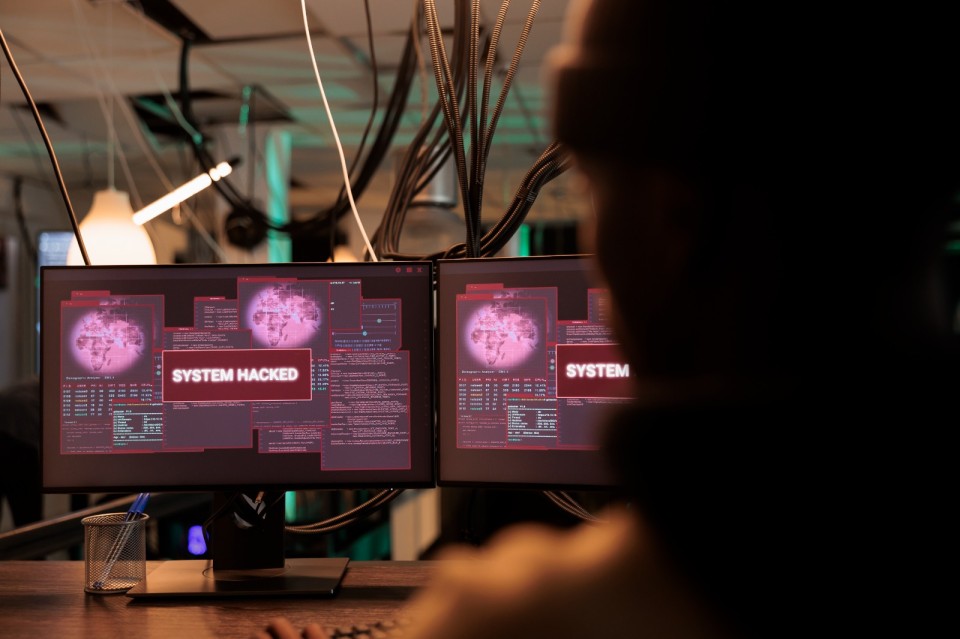
To summarise, the value of ethical hacking training in Ghaziabad's digital transformation cannot be emphasized. As organizations adopt digitalization, cloud computing technologies, Internet of Things (IoT) devices, and networked systems, the necessity for strong cybersecurity measures and qualified workers grows. Ethical hacking training provides individuals with the knowledge and skills required to discover security vulnerabilities, hacking ideas and skills, improve cyber resilience, secure data, maintain compliance, promote a culture of security awareness, support innovation, and establish trust in the digital ecosystem. By investing in ethical hacking education and training, organizations in Ghaziabad may securely negotiate the difficulties of digital transformation, effectively preserve their assets, and position themselves for long-term growth and success in the digital age.
Ethical hacking courses are important in preventing cybercrime because they provide individuals with the knowledge, skills, and tools required to successfully identify, avoid, and respond to cyber threats. As the frequency and sophistication of cyber-attacks increase, organizations and people confront growing threats to their digital assets, sensitive information, and privacy. Ethical hacking education is a proactive approach to cybersecurity, teaching people to think like hackers, identify vulnerabilities, and protect systems from harmful attacks. Let's look at how ethical hacking courses can assist prevent cybercrime and create a safer and more secure digital world.
1. Understanding Cybercriminals Mindset: Ethical hacking courses prepare students to think like attackers and anticipate potential hazards. Individuals can obtain insight into the motivations for cybercrime and the vulnerabilities cybercriminals exploit by researching typical attack methodologies, exploitation methods, and social engineering tactics utilized by hostile actors. Understanding cybercriminals' mentality and techniques is critical for designing efficient defense mechanisms and proactive security measures to prevent assaults before they occur.
2. Identifying Security Vulnerabilities and Weaknesses: Ethical hacking courses focus on identifying security flaws and weaknesses in systems, securing networks, and applications. Hands-on exercises, penetration testing, and vulnerability assessments teach students how to analyze the security posture of digital assets, identify potential entry points for attackers, and identify major flaws that can be exploited. Trained specialists may resolve shortcomings, patch vulnerabilities, and strengthen cyber defenses by conducting comprehensive security audits and assessments.
3. Conducting Penetration Testing and Security Assessments: Ethical hacking courses emphasize the need for proactive steps to analyze cybersecurity safeguards and detect vulnerabilities. By simulating real-world cyber attacks, ethical hackers can analyze the resilience of systems, networks, and applications, revealing security flaws and potential sites of compromise. Penetration testing exercises give students practical expertise in exploiting vulnerabilities and escalation privileges, and demonstrating the impact of security weaknesses on organizational security.
4. Applying Security Best Practices and Countermeasures: Ethical hacking and cyber security education teaches best practices and remedies for improving cybersecurity defenses and effectively managing cyber hazards. Students study secure coding practices, network hardening techniques, encryption protocols, and incident response procedures to help organizations improve their security posture. Individuals can increase their resilience against cyber threats across several attack vectors by applying the security best practices advised in ethical hacking courses.
5. Improved Incident Response and Cyber Forensics abilities: Ethical hacking courses provide individuals with the necessary abilities to properly investigate, analyze, and remedy cybersecurity incidents and data breaches. Trained specialists learn how to identify indicators of penetration, gather digital evidence, conduct forensic analysis, and rebuild cybercrime scenarios to comprehend the impact and core causes of security breaches. Individuals who hone their incident response skills can respond quickly to cyber threats, contain breaches, and reduce the impact on organizational assets and activities.
6. Promoting Ethical Hacking and Legal Compliance: Ethical hacking courses highlight the significance of ethical behavior, professionalism, and legal compliance in cybersecurity procedures. Trained professionals follow ethical hacking norms, standards of conduct, and confidentiality agreements to ensure responsible and lawful security assessments and penetration testing activities. Individuals who adhere to ethical norms and follow legal frameworks display integrity, reliability, and respect for privacy rights in their cyberspace engagements, thereby contributing to a culture of ethical hacking and responsible cybersecurity practices.
7. Fostering a Culture of Security Awareness and Training: Ethical hacking courses promote security awareness and training in organizations and communities. Trained professionals can increase awareness of the necessity of cybersecurity hygiene and secure behavior by training employees, stakeholders, and end users on cybersecurity risks, best practices, and emerging threats. Promoting security awareness helps prevent social engineering assaults, phishing scams, and insider threats, lowering the risk of successful cyber attacks and improving an organization's overall security posture.
8. Contributing to Cybersecurity Research and Innovation: Ethical hacking courses promote cybersecurity research, innovation, and knowledge sharing by fostering a community of talented people with a love for cybersecurity. Trained individuals to work on research projects, vulnerability disclosures, bug bounty programs, and cybersecurity competitions to improve the discipline of ethical hacking, identify new vulnerabilities, and provide creative security solutions. Ethical hacking education promotes collaboration, creativity, and continual learning in cybersecurity techniques, technologies, and strategies for effectively combating cybercrime.
Ethical hacking courses play an important role in preventing cybercrime by providing individuals with the knowledge and skills required to defend against cyber threats, preserve digital assets, and maintain cybersecurity standards. Individuals who receive ethical hacking education have a thorough awareness of cybercriminals' techniques, security vulnerabilities, and attack vectors, allowing them to analyze risks proactively, deploy security measures, and respond to security incidents with agility and efficacy.

Ethical hacking courses promote ethical behavior, legal compliance, security awareness, incident response readiness, and innovation in cybersecurity practices, resulting in a safer and more secure digital environment in which organizations, individuals, and communities can thrive in the face of evolving cyber threats.
In the digital age, where information technology (IT) is critical to enabling economic growth, innovation, and connection, IT infrastructure security has become a top priority for Ghaziabad-based organizations. As cyber threats grow in sophistication and regularity, the demand for talented cybersecurity workers, particularly ethical hackers, has never been higher. Ethical hackers, also known as white-hat hackers, play an important role in securing Ghaziabad's IT infrastructure by proactively finding vulnerabilities, assessing risks, and implementing strong security measures to prevent cyber assaults. Let's look at the critical role of ethical hackers in protecting Ghaziabad's IT infrastructure and guaranteeing the resilience of digital assets and processes.
1. Ethical hackers are responsible for identifying security flaws in Ghaziabad's IT infrastructure, including systems, networks, and applications. Ethical hackers use penetration testing, vulnerability assessments, and security audits to replicate real-world threats and identify holes that bad actors could exploit. By proactively finding vulnerabilities, ethical hackers assist organizations in Ghaziabad in closing security gaps, strengthening defenses, and mitigating risks before cyber attackers exploit them.
2. Conducting Penetration Testing: Ethical hackers examine the security of IT infrastructure in Ghaziabad. Ethical hackers evaluate the robustness of systems, networks, and applications to multiple attack vectors by replicating cybercriminals' tactics and approaches. Ethical hackers conduct penetration testing operations to detect entry points, exploit vulnerabilities, elevate privileges, and highlight the possible impact of security flaws on organizational assets. By doing penetration testing regularly, ethical hackers assist organizations in Ghaziabad in staying one step ahead of cyber threats and strengthening their security defenses.
3. Applying Security Controls and Best Practices: Ethical hackers help to secure Ghaziabad's IT infrastructure by adopting security policies, best practices, and countermeasures to successfully defend against cyber threats. Ethical hackers assist organizations in establishing a strong security posture that adheres to industry standards and best practices by advising them on secure configuration settings, access controls, encryption protocols, and security policies. Ethical hackers in Ghaziabad assist organizations in building preventative and investigative procedures to mitigate cyber threats and improve the overall security resilience of IT infrastructure, drawing on their knowledge of cybersecurity frameworks and risk management principles.
4. Improving Incident Reaction Capabilities: Ethical hackers help organizations in Ghaziabad improve their reactions to cybersecurity incidents and data breaches. Ethical hackers are trained in cyber forensics, threat analysis, and incident response, allowing them to investigate security breaches, identify root causes of occurrences, and quickly remedy security flaws. By working with incident response teams, IT professionals, and management stakeholders, ethical hackers help to ensure a coordinated and effective response to cyber incidents, minimizing the impact on organizational assets and quickly restoring operations.
5. Ethical hackers promote a culture of continuous learning, skill growth, and collaboration inside IT teams, developing a strong cybersecurity attitude and proactive approach to cyber defense. Ethical hackers promote a culture of continuous learning, skill growth, and collaboration inside IT teams, developing a strong cybersecurity attitude and proactive approach to cyber defense.
6. Ensuring Compliance with Regulatory Standards: Ethical hackers ensure compliance with regulatory standards, data protection regulations, and industry-specific criteria for organizations in Ghaziabad. By conducting security assessments, risk assessments, and security audits, ethical hackers assist organizations in aligning their IT infrastructure with regulatory frameworks such as the General Data Protection Regulation (GDPR), the Payment Card Industry Data Security Standard (PCI DSS), and the Information Technology Act. Ethical hackers contribute by finding holes in compliance, offering remedial strategies, and leading organizations through the regulatory adherence process, ethical hackers contribute to a culture of legal compliance and ethical cybersecurity practices.
7. Contribution to Threat Intelligence and Research: Ethical hackers provide valuable contributions to threat intelligence, cybersecurity research, and knowledge exchange efforts that assist organizations in Ghaziabad and beyond. Participating in bug bounty programs, vulnerability disclosures, cybersecurity competitions, and research initiatives allows ethical hackers to discover new vulnerabilities, detect emerging threats, and build novel security solutions to effectively combat cybercrime. Ethical hackers work with cybersecurity communities, academic institutions, and industry partners to enhance cybersecurity practices, technologies, and methods that improve the resilience of Ghaziabad's IT infrastructure.

The role of ethical hackers in defending Ghaziabad's IT infrastructure is critical in the face of ever-changing cyber threats, sophisticated attack vectors, and digital vulnerabilities. Ethical hackers play an important role in safeguarding digital assets, protecting sensitive information, and strengthening the resilience of IT infrastructure against cybercrime by proactively identifying security flaws, conducting penetration testing, implementing security controls, improving incident response capabilities, educating IT teams, ensuring regulatory compliance, and contributing to threat intelligence and research. Ethical hackers are valuable allies in the ongoing fight against cyber threats because of their expertise, ethical mindset, and commitment to ethical behavior. They assist organizations in Ghaziabad in navigating the complexities of cybersecurity and building a secure digital future for their operations and stakeholders.
In Ghaziabad, a burgeoning industrial and technical powerhouse in India's National Capital Region (NCR), there is a growing demand for cybersecurity personnel, particularly ethical hackers. With the increasing digitization of enterprises, government institutions, and essential infrastructure, organisations in Ghaziabad must prioritise protecting sensitive information, securing digital assets, and defending against cyber threats. Ethical hacking, also known as penetration testing or white-hat hacking, has emerged as a critical skill set in the cybersecurity landscape, providing lucrative career opportunities for those who can identify vulnerabilities, assess risks, and strengthen defences against cyber attacks. Let's analyse the breadth of ethical hacking in Ghaziabad's employment market and the great career opportunities it offers for aspiring cybersecurity professionals.
1. Rising demand for cybersecurity professionals: As businesses in Ghaziabad continue to digitalize their operations, implement cloud technologies, and use data-driven solutions, the demand for cybersecurity professionals, especially ethical hackers, has increased. With the advent of cyber threats like ransomware, data breaches, phishing attacks, and insider threats, businesses are looking for qualified people who can protect their digital assets, sensitive information, and maintain the resilience of their IT infrastructure. Ethical hackers play an important part in addressing these cybersecurity concerns, hence they are in high demand in the Ghaziabad job market.
2. Ethical Hacking Career Opportunities: In Ghaziabad, ethical hackers can work in a variety of industries including as IT services, financial institutions, government agencies, healthcare, and e-commerce. Ethical hackers can work as penetration testers, cybersecurity analysts, security consultants, incident responders, vulnerability assessors, and security researchers. With the option to work as independent consultants, freelance experts, or full-time workers, ethical hackers can tailor their employment to their interests, expertise, and career ambitions in Ghaziabad's dynamic labour market.
3. Lucrative Salaries and Career Growth: Ethical hacking offers high earning potential and prospects for advancement in Ghaziabad's labour market. Skilled ethical hackers with industry qualifications, hands-on experience, and specialised knowledge can earn high wages, bonuses, and benefits in recognition of their vital role in defending organisations against cyber threats. As cybersecurity remains a significant issue for organisations and governments in Ghaziabad, ethical hackers may expect consistent career growth, professional development opportunities, and competitive salary packages that reflect the high demand for their specialised skills and knowledge.
4. Industry Recognition and Certificates: Ethical hacking certificates like Certified Ethical Hacker (CEH), Offensive Security Certified Professional (OSCP), and Certified Information Systems Security Professional (CISSP) are highly valued in the Ghaziabad job market. Employers look for applicants with industry certifications that show competency in ethical hacking techniques, tools, and methodologies, demonstrating their expertise and dedication to ethical cybersecurity practices. Ethical hackers can improve their credibility, marketability, and employment chances by earning essential credentials in Ghaziabad's competitive job market.
5. Collaborative Work Environment and Skill Development: Ethical hacking roles in Ghaziabad typically involve working in cross-functional teams including cybersecurity experts, IT professionals, risk analysts, and incident responders. This collaborative work environment allows ethical hackers to learn from a variety of perspectives, share knowledge and best practices, and build interdisciplinary skills that are critical for tackling difficult cybersecurity concerns. In Ghaziabad's dynamic job market, ethical hackers may stay up to date on emerging threats, innovative security solutions, and evolving technologies by engaging in constant learning, skill development, and knowledge sharing.
6. Contribution to Cybersecurity Resilience: Ethical hackers improve cybersecurity resilience in Ghaziabad by discovering vulnerabilities, conducting security assessments, and taking preventive steps to reduce cyber threats. Ethical hackers assist organisations in improving their security posture, protecting important assets, and responding effectively to cyber attacks by conducting penetration testing, vulnerability assessments, and incident response operations. By adding to cybersecurity resilience, ethical hackers help to protect Ghaziabad's digital ecosystem, create trust, and enable long-term growth in the face of increasing cyber threats.
7. Continuous Learning and Professional Development: Ethical hacking is a dynamic and tough career path that involves ongoing learning, skill advancement, and professional development to stay ahead of cyber dangers in the Ghaziabad job market. Ethical hackers have access to a wealth of materials, training programmes, workshops, and industry events that allow them to broaden their expertise, learn new technologies, and keep up with the newest cybersecurity trends. By investing in continual learning and professional development, ethical hackers can improve their skills, promote their careers, and stay competitive in Ghaziabad's changing cybersecurity scene.
The breadth of ethical hacking in Ghaziabad's job market is broad, diverse, and promising for cybersecurity professionals looking for rewarding career possibilities in cybersecurity. With an increasing demand for skilled ethical hackers, competitive salaries, industry recognition, collaborative work environments, and opportunities for ongoing learning and professional development, ethical hacking is an appealing career path for individuals looking to make a difference in securing organisations against cyber
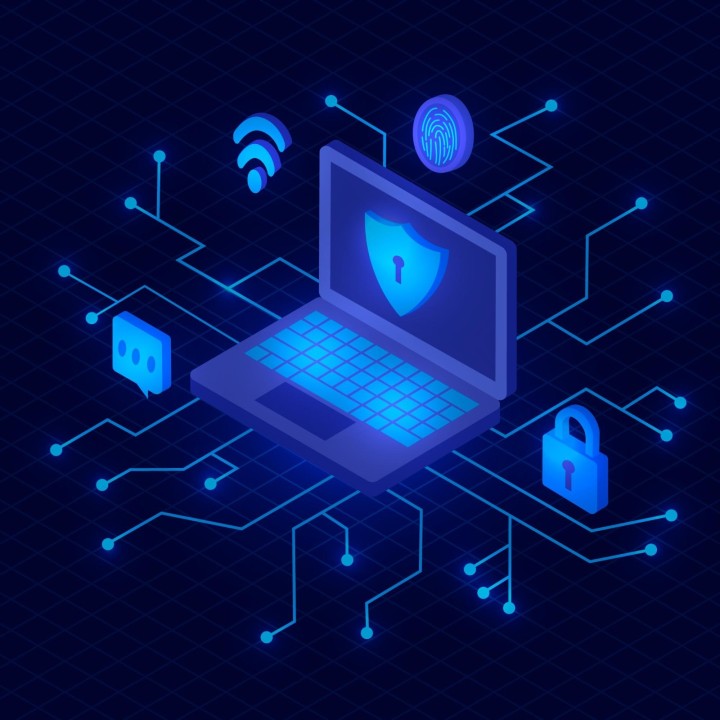
threats. As Ghaziabad embraces digital transformation and prioritises cybersecurity, ethical hackers play a critical role in safeguarding IT infrastructure, protecting digital assets, and guaranteeing organisational resilience in the face of new cyber threats.
As Ghaziabad emerges as a prominent participant in India's technological scene, ethical hacking plays an increasingly important role in securing digital assets, and sensitive information, and guaranteeing cybersecurity resilience. Ethical hackers, also known as white-hat hackers, are crucial in detecting vulnerabilities, analysing risks, and strengthening cyber defences in Ghaziabad's expanding digital economy. Looking ahead, various trends and projections are influencing the future of ethical hacking in Ghaziabad, highlighting the growing relevance of cybersecurity in the digital world. Let's look at the future of ethical hacking in Ghaziabad, focusing on significant trends and projections that will likely shape the region's cybersecurity scene.
1. Higher Demand for Skilled Ethical Hackers: One of the most visible factors impacting the future of ethical hacking in Ghaziabad is the rising demand for competent cybersecurity specialists who specialise in ethical hacking. As organisations in Ghaziabad continue to digitalize their operations, adopt cloud technologies, and use data-driven solutions, the demand for ethical hackers who can proactively uncover vulnerabilities, do penetration testing, and strengthen cybersecurity defences has increased dramatically. The future of ethical hacking in Ghaziabad is expected to see an increase in demand for personnel with the necessary technical skills, industry certifications, and ethical mentality to safeguard organisations from cyber attacks.
2. Growing Importance of IoT Security: As IoT devices become more prevalent in homes, businesses, and vital infrastructure, ethical hacking in Ghaziabad will prioritise IoT security. Ethical hackers will be critical in determining the security of IoT devices, discovering vulnerabilities in IoT networks, and limiting the dangers associated with unsecured IoT deployments. As IoT use grows in Ghaziabad, ethical hackers must stay current on evolving IoT security concerns and trends to properly safeguard linked devices and networks from cyber threats.
3. Cloud Security: Cloud computing is essential for digital transformation in Ghaziabad, providing scalability, flexibility, and efficiency in IT resource management. However, the future of ethical hacking in Ghaziabad will place a greater emphasis on cloud security as organisations struggle to secure critical data and workloads in cloud settings. To address the particular issues presented by cloud-based infrastructures, ethical hackers must specialise in cloud security evaluations, secure configuration reviews, and incident response preparation. By focusing on cloud security, ethical hackers may assist organisations in Ghaziabad in navigating the challenges of cloud adoption while guaranteeing data protection and regulatory compliance.
4. Integration of Artificial Intelligence and Machine Learning: The future of ethical hacking in Ghaziabad will incorporate AI and ML technologies with cybersecurity operations. Ethical hackers will use AI-powered tools for threat detection, anomaly detection, and predictive analytics to increase the efficiency and efficacy of cybersecurity operations. Ethical hackers may use AI and machine learning to automate regular activities, analyse massive volumes of security data, and detect sophisticated cyber attacks in real time. The use of AI and ML in ethical hacking will help professionals in Ghaziabad keep ahead of cyber threats, respond quickly to incidents, and increase the resilience of IT infrastructure against evolving attack vectors.
5. Prioritise Zero Confidence Security: This cybersecurity strategy, which assumes no confidence in individuals, devices, or networks by default, is gaining popularity in Ghaziabad and globally as organisations strive to improve their security postures. The future of ethical hacking in Ghaziabad will see a greater emphasis on integrating Zero Trust concepts to improve security controls, enforce least privilege access, and protect against internal threats. Ethical hackers will play critical roles in building and implementing Zero Trust architectures, conducting security audits, and guaranteeing continuous monitoring of IT environments to successfully prevent unauthorised access and reduce security threats.
6. Growth of Bug Bounty Programs: Bug bounty programmes, which reward ethical hackers for reporting security vulnerabilities, are becoming increasingly popular in Ghaziabad. Organisations in Ghaziabad are increasingly adopting bug bounty programmes as a proactive approach to cybersecurity, employing the skills of ethical hackers to discover vulnerabilities before they can be abused by criminal actors. The future of ethical hacking in Ghaziabad will include the expansion of bug bounty programmes, which will enable collaboration between organisations and ethical hackers to improve security, promote responsible disclosure, and boost the region's overall cybersecurity posture.
7. Regulatory Compliance and Data Privacy: The future of ethical hacking in Ghaziabad will prioritise regulatory compliance and data privacy. With the implementation of severe data protection legislation such as the Personal Data Protection Bill and the General Data Protection Regulation (GDPR), organisations in Ghaziabad must maintain compliance with legal frameworks to secure personal information and sensitive data. Ethical hackers will be critical in conducting compliance audits, reviewing data protection measures, and installing security controls to fulfil regulatory criteria and effectively protect privacy rights.
The future of ethical hacking in Ghaziabad is set to develop, innovate, and evolve as organisations prioritise cybersecurity, adopt emerging technology, and negotiate complicated cyber threats. By staying up to date on key trends such as increased demand for skilled professionals, IoT security challenges, cloud security considerations, AI and ML integration, Zero Trust principles, bug bounty programmes, and regulatory compliance requirements, ethical hackers in Ghaziabad can position themselves for success in the dynamic and ever-changing cybersecurity landscape. As Ghaziabad-based organisations invest in cybersecurity resilience and risk mitigation methods, ethical hackers will play an important role in securing digital assets, defending key infrastructure, and guaranteeing the region's safe and secure digital future.